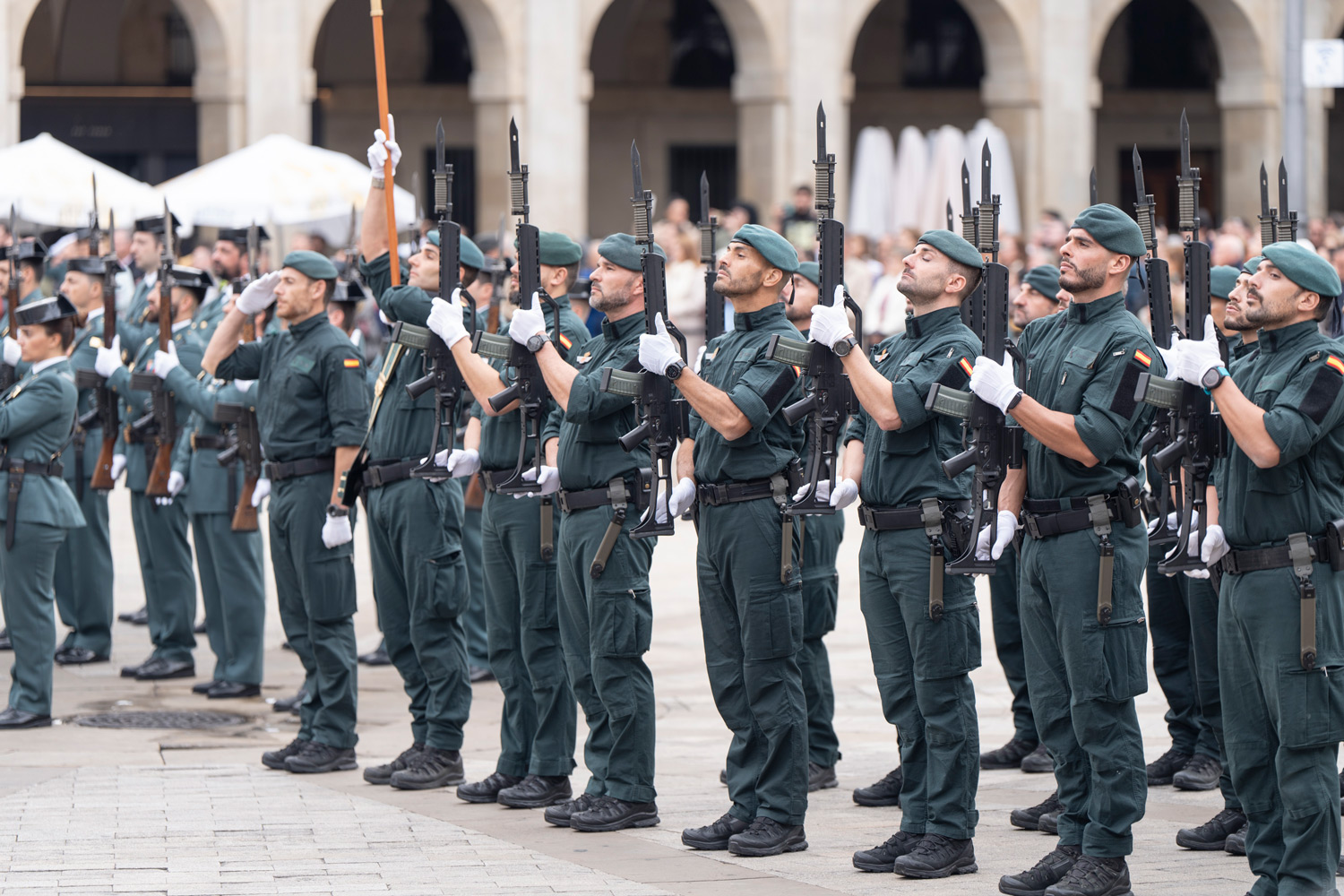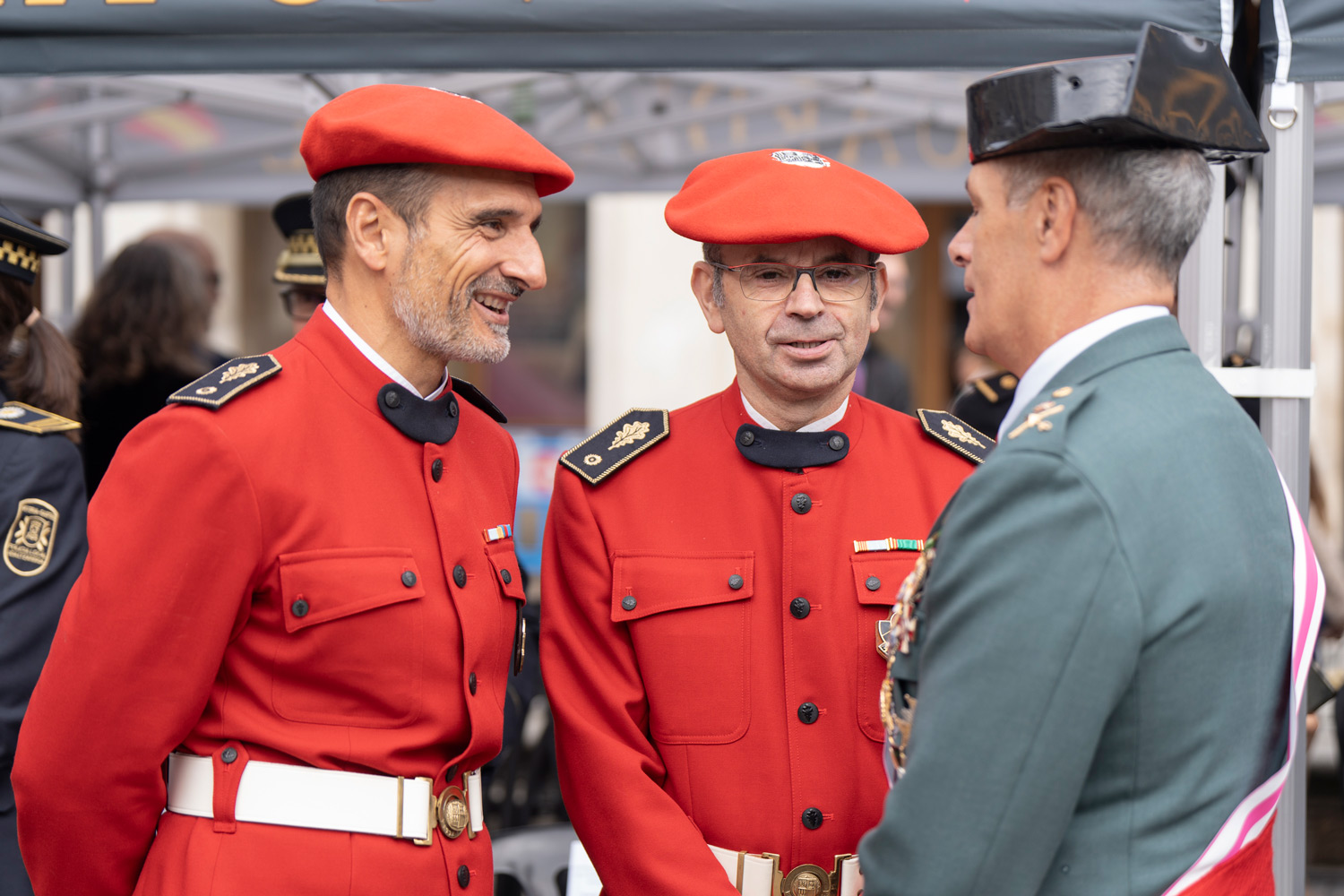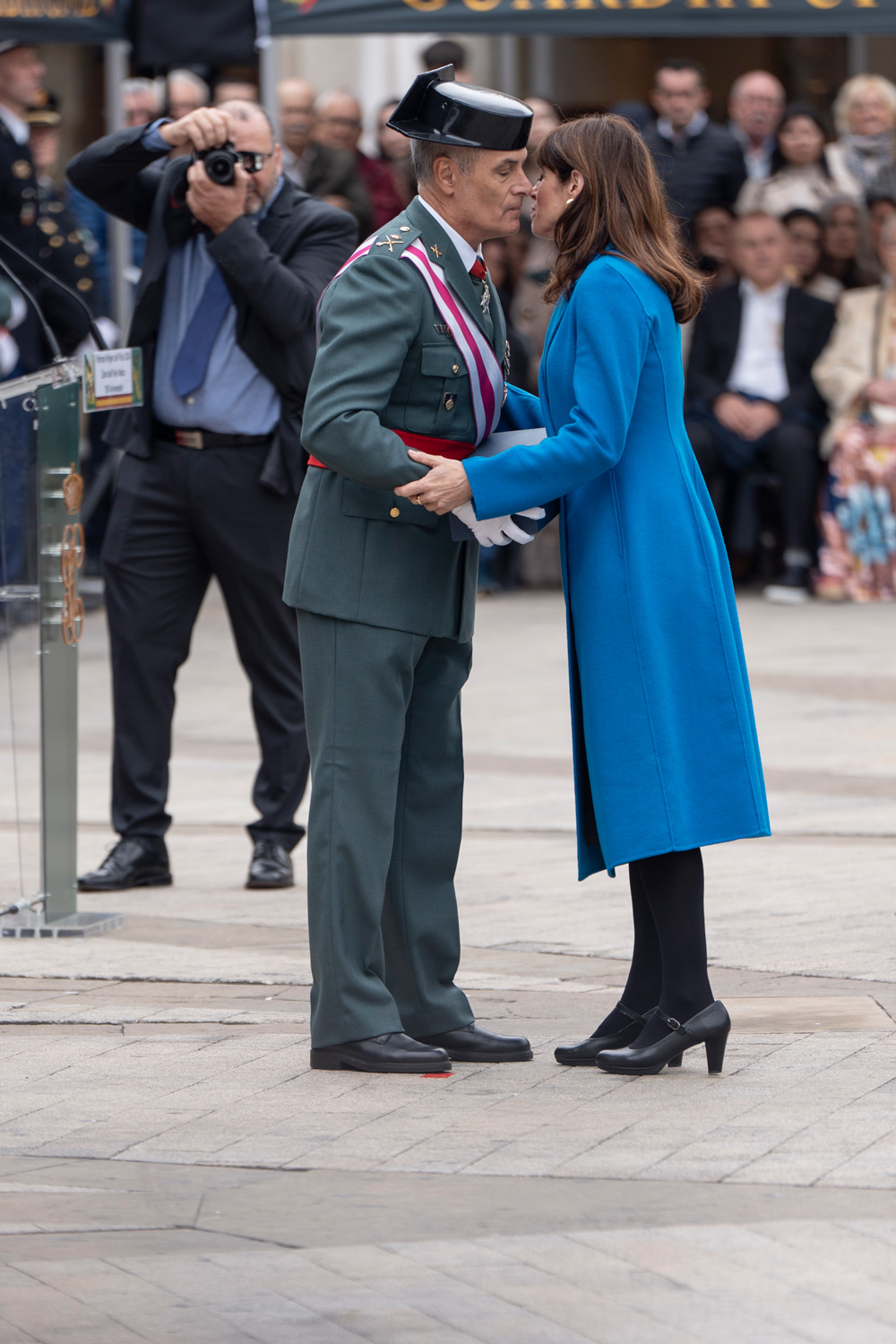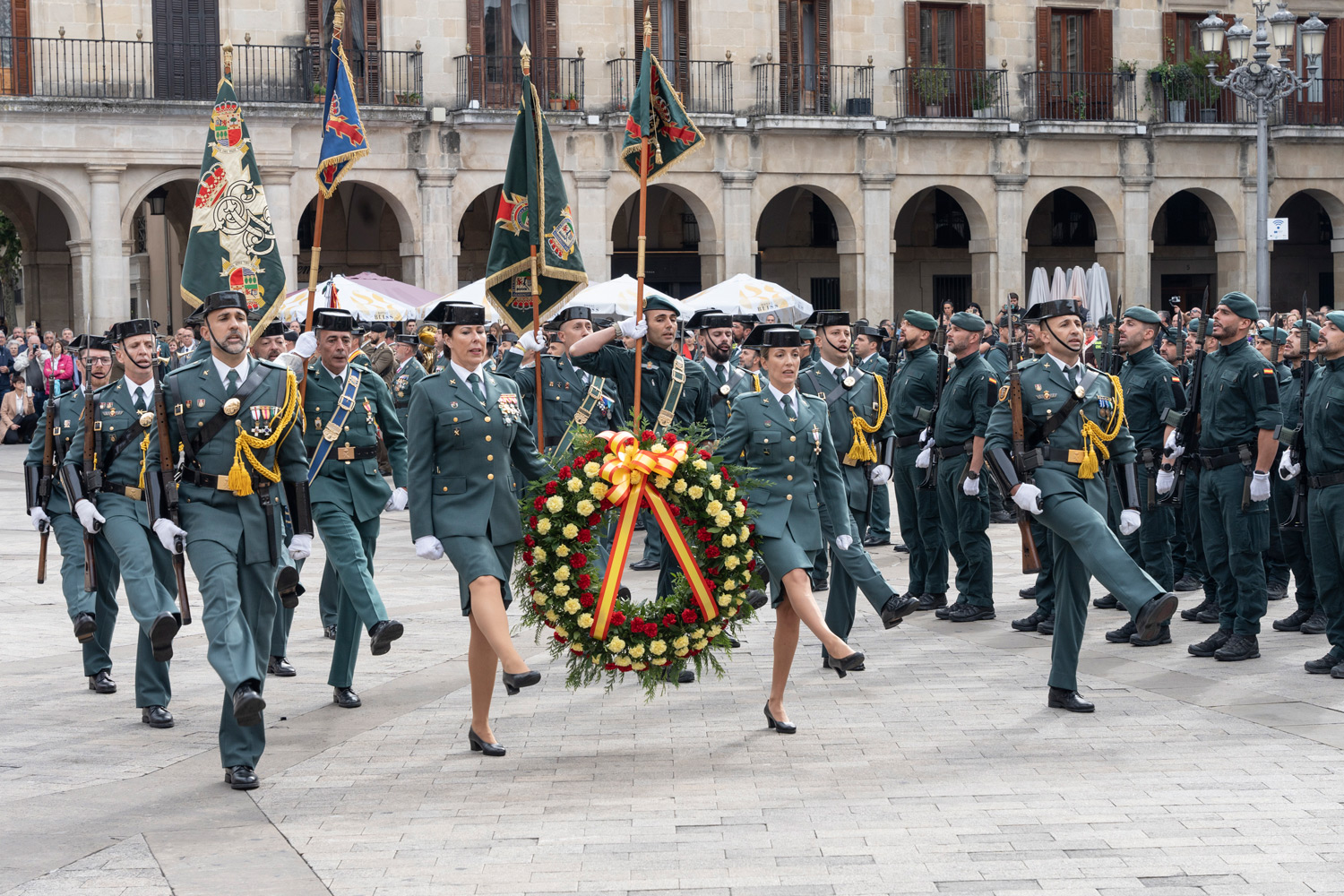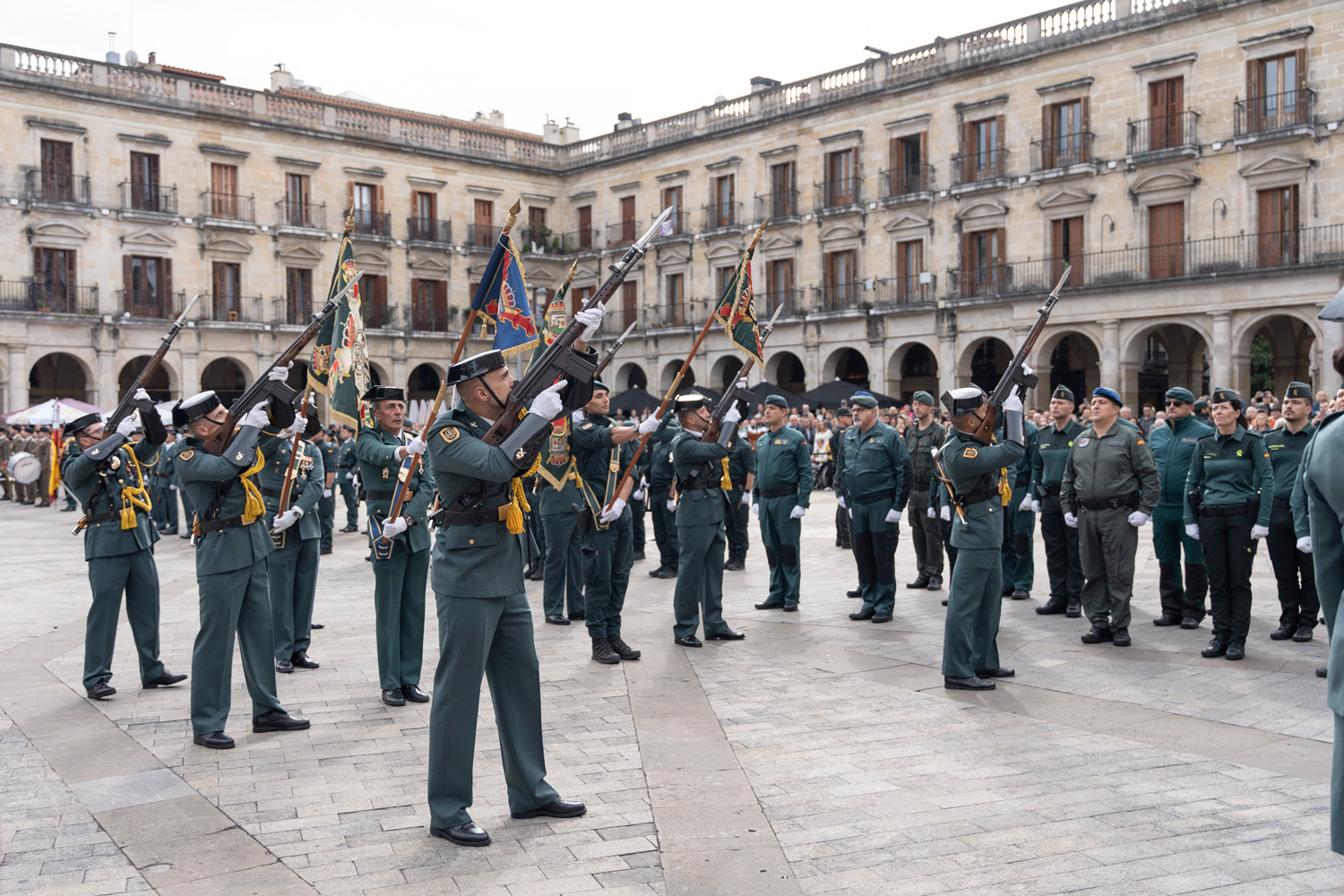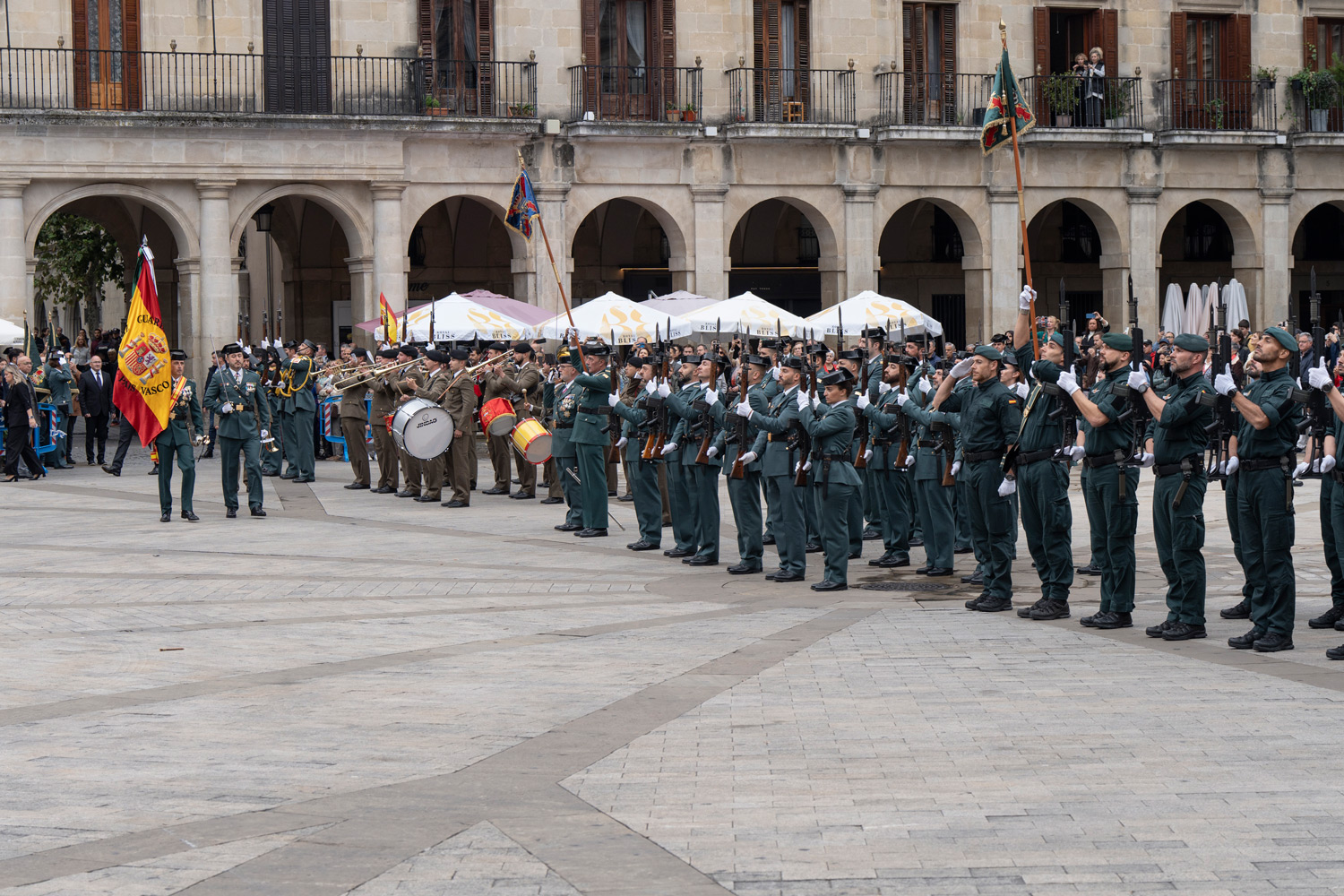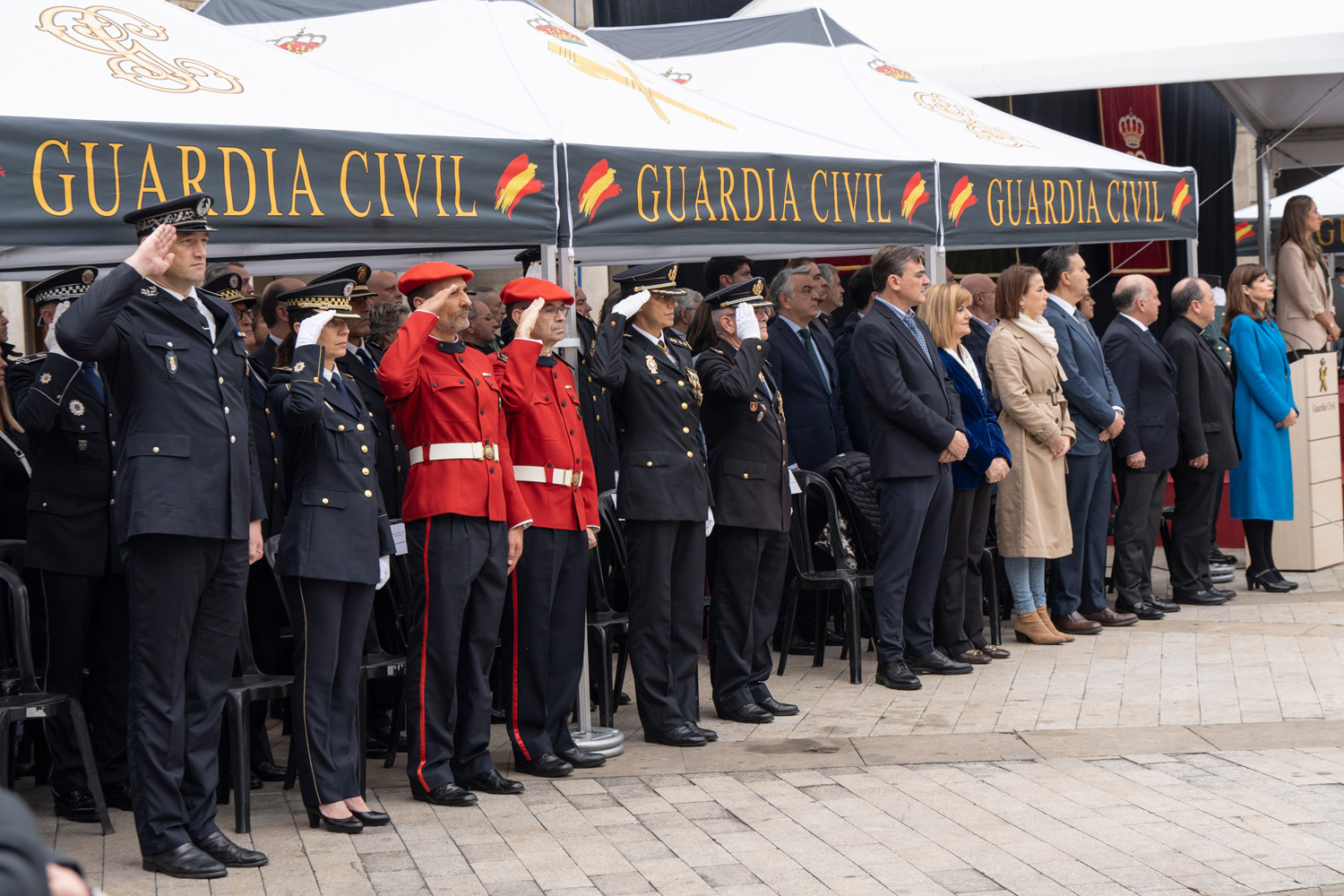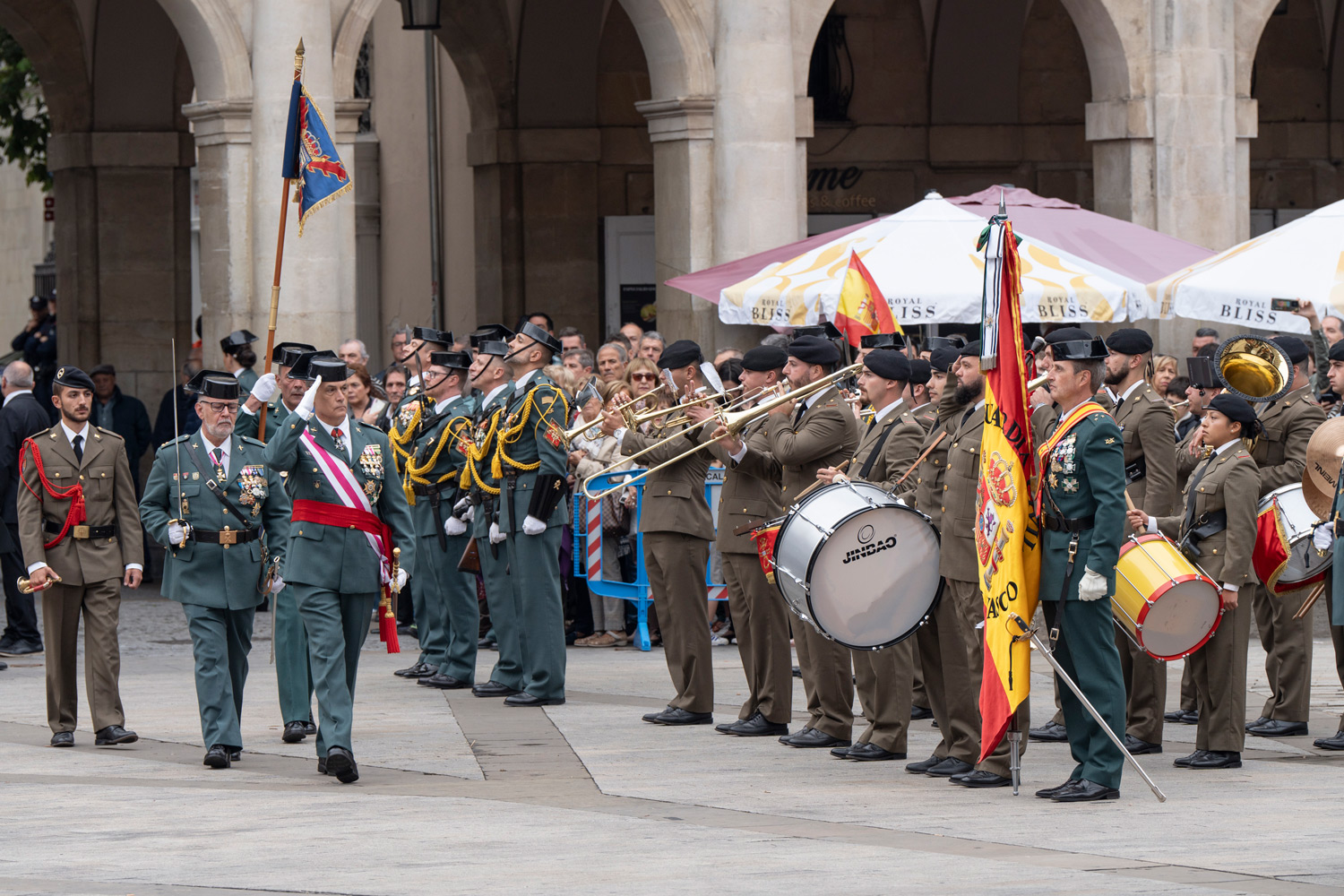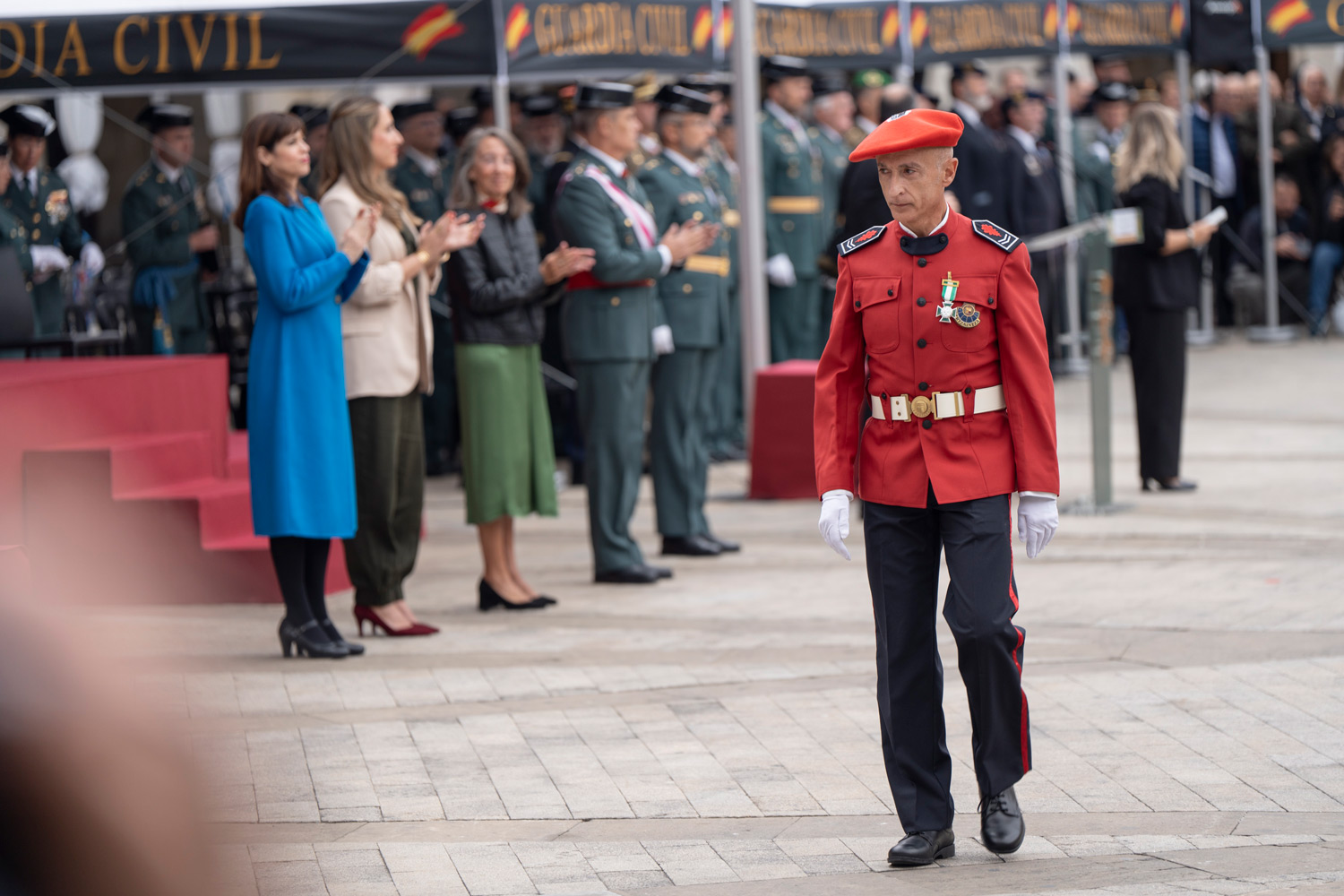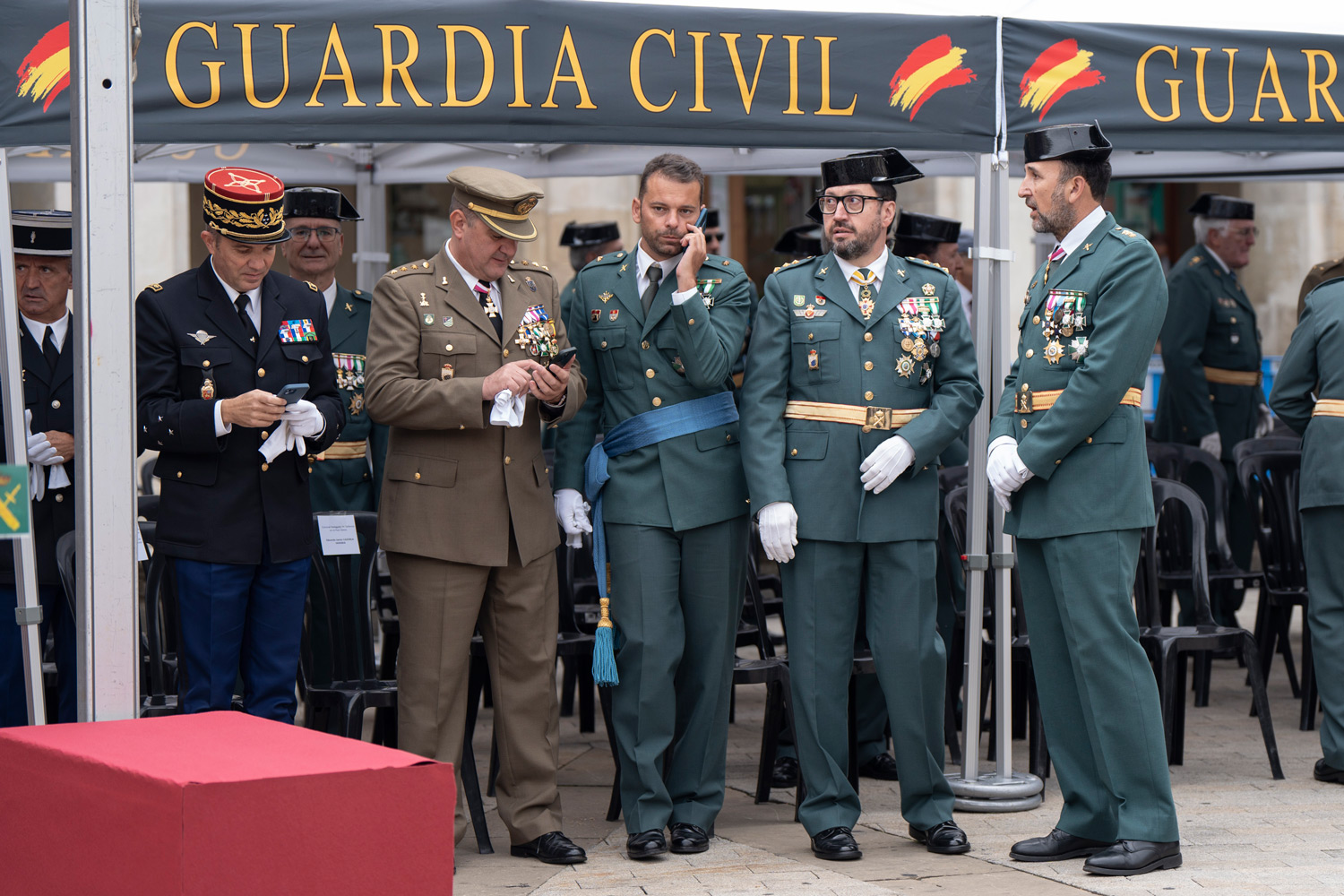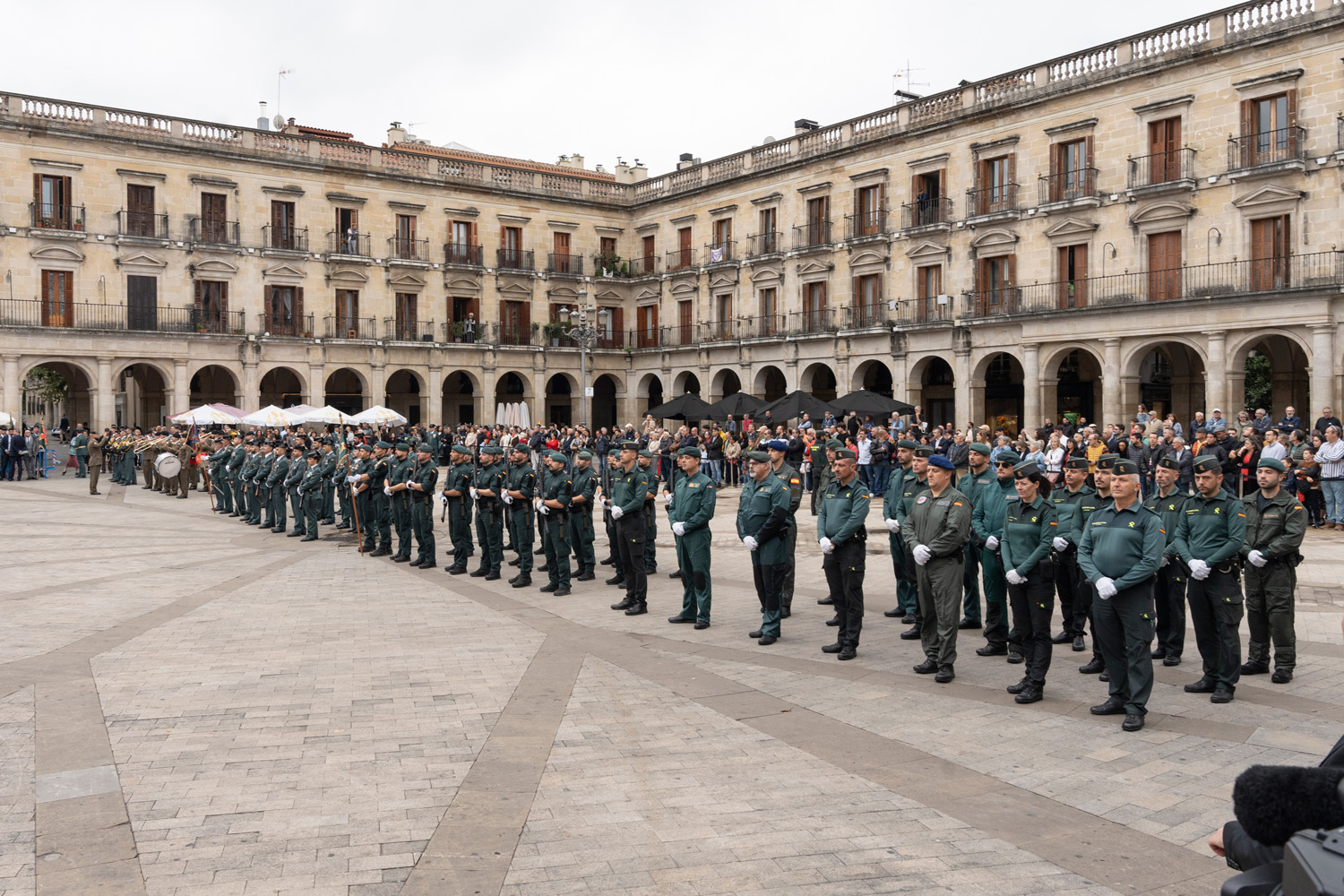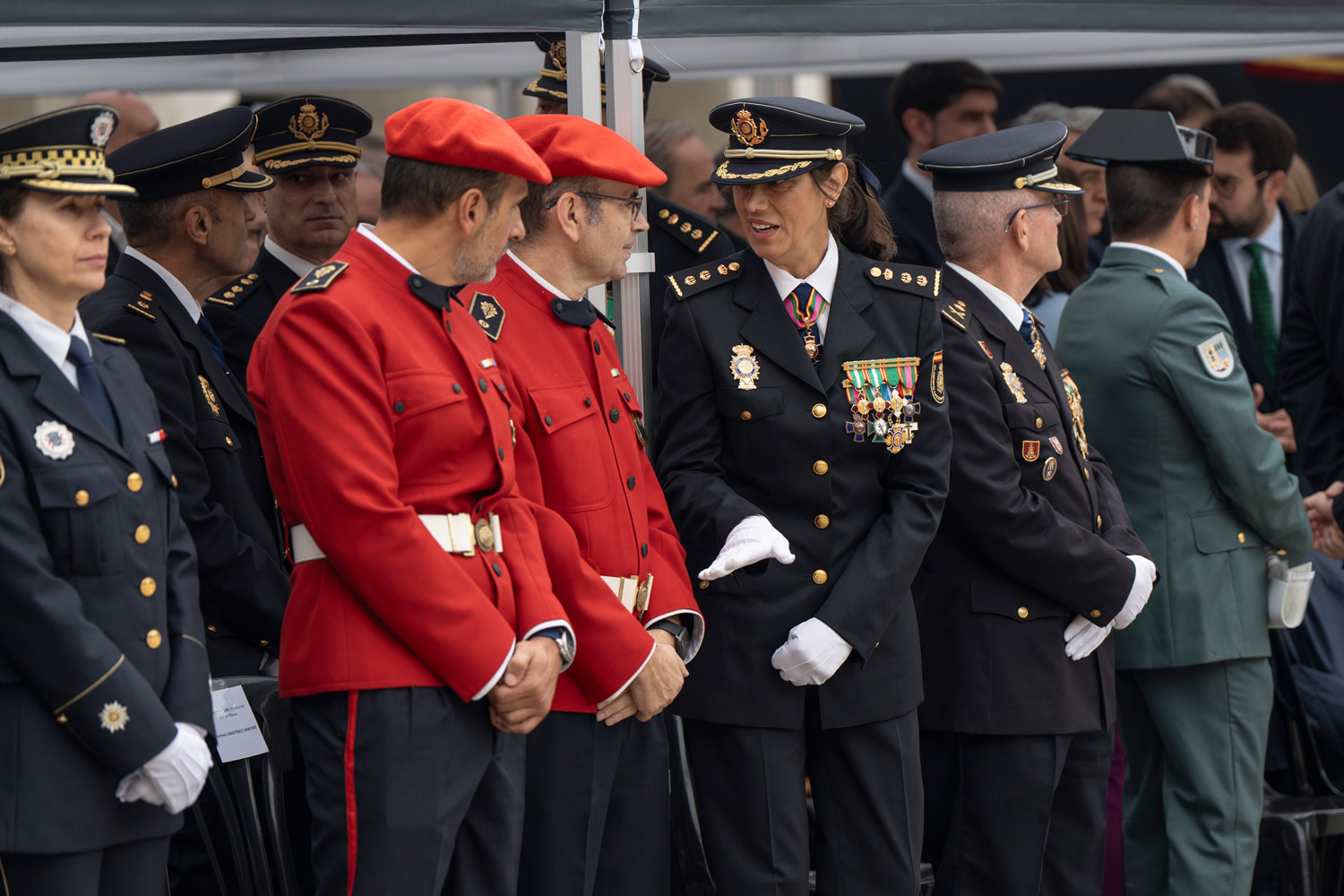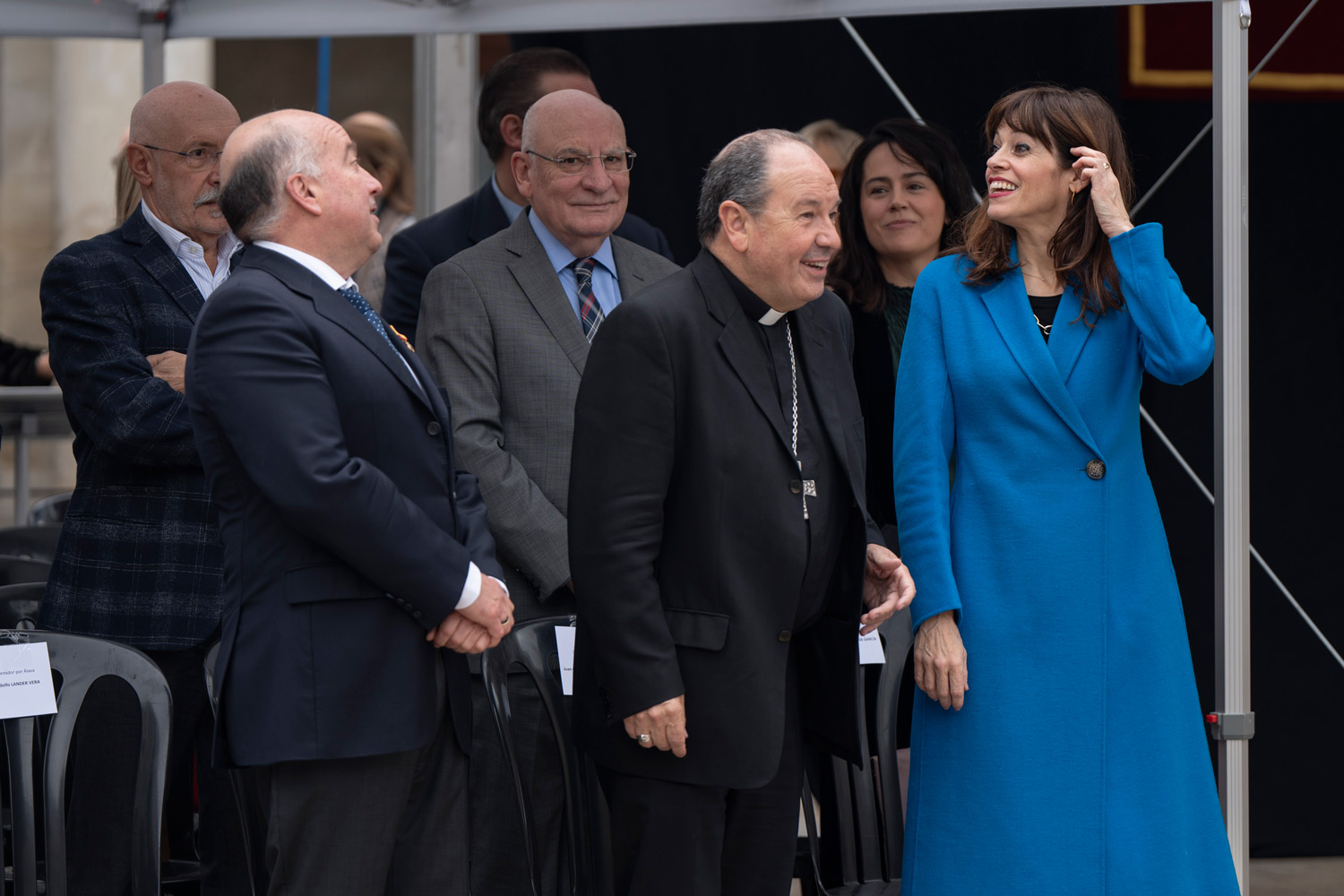
- For the first time since its creation 180 years ago, the Guardia Civil celebrated the day of its patron and Hispanidad outside the barracks and in the center of Vitoria-Gasteiz. The Mayor of Vitoria-Gasteiz, Maider Etxebarria, the representative of the Spanish Government, Marisol Garmendia, the bishop of Vitoria-Gasteiz and representatives of the Ertzaintza, who paid tribute to Spain, the king and the Civil Guard and paid tribute to the “exemplary” work carried out “against terrorism”. Half an hour earlier, the Total Memory platform held an event at the Artium Museum, “in the face of the pain and revictimization generated in us by tributes and public tributes to one of the main perpetrators of crimes against us.” The room of the Artium Museum has been small and many citizens have been left out, while the Plaza Nueva has become too large for lovers of the blessed. The wound is not closed more open than yesterday (Photo gallery of the act at the end of the news)
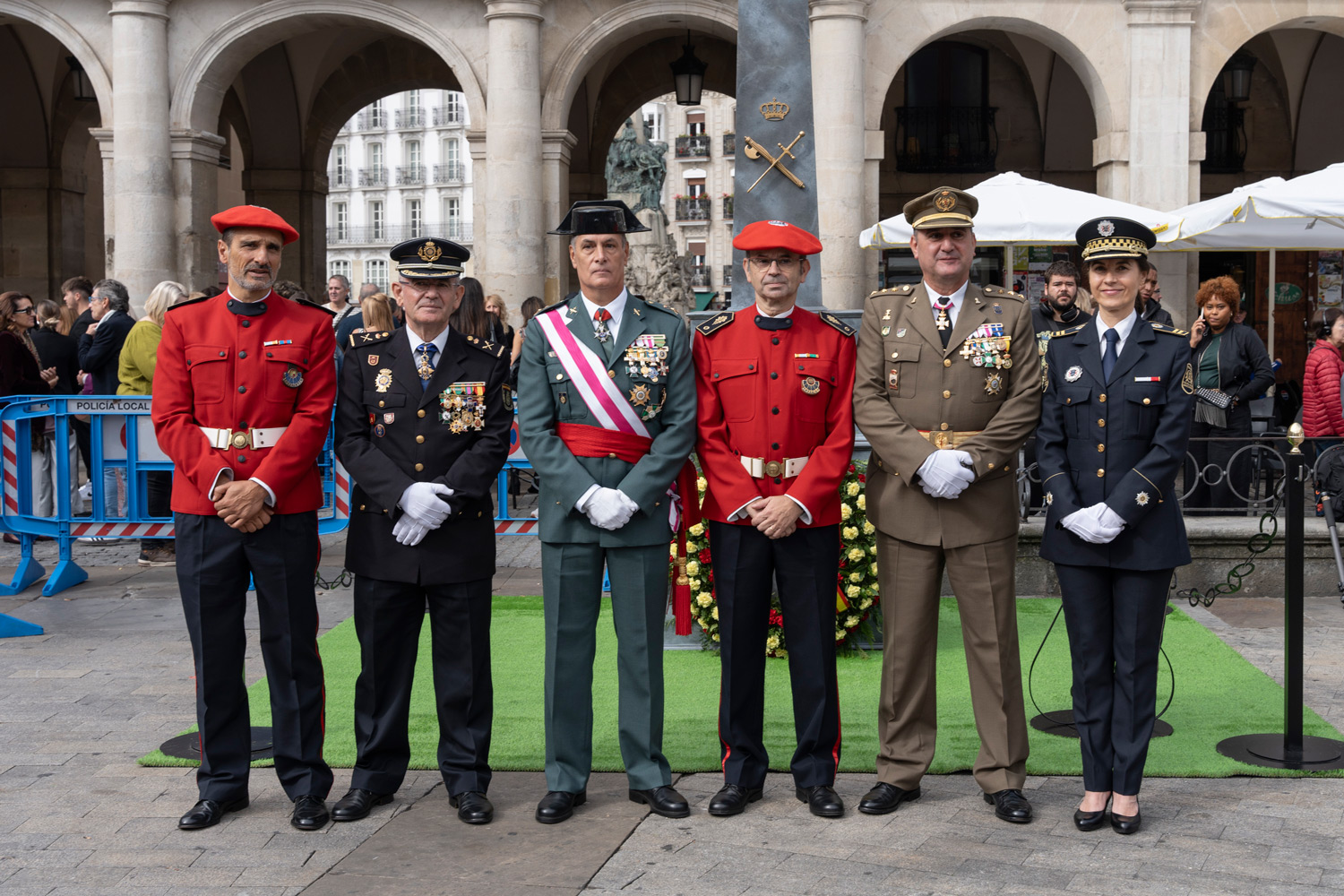
People who have approached the act of Artium, many tortured, were entering the room when I went to Plaza Nueva, in front of the City Hall, to chronicle the act of the Civil Guard. Before reaching the plaza I found the Civil Guard band before the Centre for the Memory of Victims of Terrorism, a space in which the tortured and murdered by the Civil Guard have no place. “It’s a shame,” I’ve been told by the unknown citizen who has passed me here.
Ertzaintza on the three entrances to the plaza. Also in the Plaza de Santa Maria and in all the accesses to the Casco Viejo. Inside, half a square has been agreed to give way to the authorities and parades: judges, ecclesiastics, politicians and a multitude of police and military, with the breasts loaded with tin. In the other half there were few people and a lot of agglomeration: the astonished who have gone to the plaza without knowing anything, a lot of police without uniform, or some who have come to pay tribute to the military.
“Can I put myself here?” I asked a young man, to assure him the right place to follow the event. The place is appropriate, but further away from what is desired, and regardless of the number of journalists, because the Civil Guard has denied the credential to the ARGIA journalist for “security reasons” (the photographer has given his consent). “There is no problem,” the young woman replies, who continues to watch videos on the phone, from today’s tribute to the Spanish Legion. A few meters later, another citizen, with petachos of suspicious meaning in the backpack, exhibits the colors of the Spanish flag and the motto “Pain is transient” (Mina is ephemeral). A woman in a paisano suit approached me in a disguised way behind my back, looked at me quickly at the one I wrote in my notebook and walked back away.
Decoration of the City of Vitoria
During the training several Civil Guard groups have joined the plaza, including the GAR unit, a symbol of the fight against terrorism. The act has begun with a tribute to the Spanish flag, “with the obligation of every military to respect and defend”, accompanied by the metropolitan anthem. It may be due to the lack of habit of organizing events in open spaces, but the fragility of the public address will make it difficult to follow the recommendations of the rapporteurs throughout the event.
PSE-EE Mayor Maider Etxebarria has received special recognition from the Civil Guard to the City Hall of Vitoria-Gasteiz
Time of decorations. A General and a Lieutenant Colonel of the Civil Guard, a Delegate and Subdelegate of the Spanish Government and the Mayor of Vitoria-Gasteiz have delivered the medals to the people and institutions that “this year have highlighted in the mission of their services”. The decorations included a civil guard, an ertzaina, a Spanish police officer and a French gendarme, as well as a silver medal. It is a pity that they have not defined what the merits of each have been for the medal. Finally, the Mayor of the PSE-EE, Maider Etxebarria, has received special recognition from the Civil Guard to the City of Vitoria-Gasteiz, in which he has shown his "sincere thanks" for the authorization of the event. The following rapporteurs have repeated their thanks.
Democratic normality
The event had two main presentations. The first was by José Antonio Mingorance, Chief General of the Civil Guard in the Basque Country. The military has praised the “commitment” of the military organization in the 180 years “for the rights and freedoms of citizenship” and has especially reminded his fellow “murdered by terrorism”.
“Beautiful, meaningful, exciting, hopeful.” This has been defined by the Government delegate to Spain, Marisol Garmendia, on the occasion of the celebration of the event in Plaza Nueva. “Normally, representing the plural Basque society we are.” In his opinion, the act symbolizes "the democratic spectacularity of the State's security forces and bodies" and "democratic normality". An example of such normality would be the fact that the National Police also celebrated its 200th anniversary on Indautxu Street in Bilbao.
“Today we celebrate our holiday, but also our values. “Long live Spain! Well, long live the king! Long live the Civil Guard!” (Marisol Garmendia, Spanish Government Delegate, PSE-EE)
Socialist Garmendia has taken advantage of the famous poem Caminante there is no way for Antonio Machado, who died in exile in 1939, in the act of the Civil Guard, one of the fundamental pillars of Franco, to fight against ETA, “a shortcut that we do not have to tread again”. He referred, in any case, to the Civil Guard: he highlighted his “decisive contribution” to the disappearance of ETA and to “democratic coexistence” or he underlined his work for “equality” between men and women. “Today we celebrate our daily lives, but also our values,” he summarizes at the end of the day, “Viva España! Well, long live the king! Long live the Civil Guard! Long live the king! Long live the Civil Guard! to end with a sharp sound.
Next, a tribute has been paid to the "murdered by Spain", accompanied by a few words from the bishop of Vitoria in defense of their souls and from the Civil Guard hymn, which have sung with the military some of the citizens surrounding me. At the end of the act and the rigid protocol, collective hugs, promises or photographs have been initiated in an informal and cordial environment between politicians, priests, judges, Ertzainas and civil guards. The speakers have announced that the day will continue at the Sansomendi headquarters, with a lunch.
By then there were a little more people in the square, half deserted. Despite the impact it has had, and knowing that only hundreds of people live in the Sansomendi headquarters, it seems that it has not even mobilized its closest, the Spanish acts.
Plaza too big, small room
“What they are going to do on October 12 in Vitoria-Gasteiz is an apology for terrorism,” a vitorian who was tortured by the Civil Guard in an interview with ARGIA on the occasion of the event predicted a week earlier. We decided not to publish that interview, among other things because it feared the consequences that the tortured person might have. All this has happened this October 2024, thirteen years after ETA’s disappearance.
“I have no doubt that ETA has created terror for a part of society, but those who have created terror for a large part have been the Civil Guard, the National Police, the Ertzaintza, judges or prison officials,” the interviewee explained. With an important difference: some have acknowledged what they have done; others, no.
On Columbus Day, the Civil Guard and its followers occupied the main plaza of Vitoria-Gasteiz throughout its journey, and especially to apologize for what has been done in the “fight against terrorism”, while the victims of torture and state violence have denounced it in a closed room. But some have been left with a large plaza and others have been left with a large room too small.
